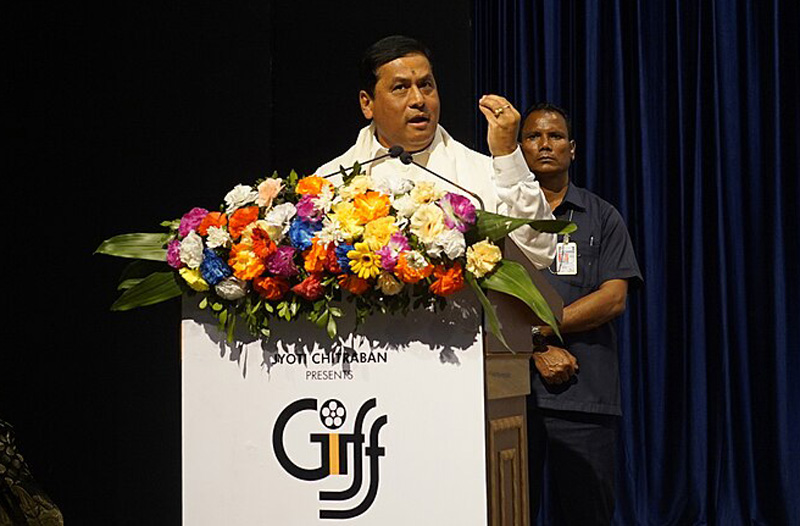 Sarbananda Sonowal
Sarbananda Sonowal
Japanese and Korean shipbuilders keen to invest in India: Sarbananda Sonowal
New Delhi/IBNS: In a potential boost for India's developing shipbuilding industry, companies from Japan and South Korea have shown interest in investing in the sector, according to Union Minister of Ports, Shipping, and Waterways Sarbananda Sonowal.
“This could involve direct investments, joint ventures, or technology sharing, or other forms of collaboration. Such international interest is a testament to the attractiveness of India’s shipbuilding initiative and the potential benefits of global expertise and capital infusion into the sector,” Sonowal told Business Standard in an interview following the recent Maritime State Development Council (MSDC) meeting.
On Friday, the ministry outlined plans to establish several shipbuilding clusters in partnership with coastal states to achieve its ambitious goals.
Presently, India ranks 20th in global shipbuilding, holding a mere 0.06 percent of the market share.
In comparison, China, South Korea, and Japan dominate the industry, controlling 85 percent of the global market share, according to a recent shipping ministry presentation.
“The ministry has a clear vision for the phased development of shipbuilding clusters, with an expectation that 2-3 clusters will be developed and operational within the next 10 years, followed by an additional 1-2 clusters within the subsequent five years,” Sonowal said.
“This phased approach allows for careful planning, allocation of resources, and addressing any challenges that arise during the initial stages of development,” he added.
Sonowal also noted that new entrants aiming to “diversify business interests” have expressed their intention to enter the shipbuilding sector.
Recent reports indicate that Adani Ports and Special Economic Zone, India’s largest port operator, is exploring a venture into shipbuilding.
The minister mentioned that the government's support for the sector has encouraged both state-run and private shipbuilders to expand their investments.
“They are looking to expand their operations, which could mean increasing their shipbuilding capacity, enhancing technological capabilities, or diversifying their product offerings,” he said.
To facilitate this expansion, the ministry has requested assistance from states at the MSDC meeting in Goa.
The central government will provide most of the capital support through a 30,000 crore Maritime Development Fund, with 49 percent financed by the Centre and the remainder through port authorities and private investors.
The shipbuilding industry has highlighted its need for large aggregated land parcels with adequate waterfronts and sufficient channel depth to establish successful shipbuilding clusters.
“The availability of waterfront is crucial for shipbuilding activities, allowing for the construction, launching, and testing of ships, while sufficient channel depth is necessary to accommodate the movement of large vessels in and out of the shipyards. Meeting these requirements is fundamental to the operational success and competitiveness of the shipbuilding clusters,” Sonowal told Business Standard.
In response to these needs, coastal states will soon develop policies and incentive schemes.
“These can include facilitating land aggregation, ensuring availability of adequate waterfront, fast-track clearances and approvals to reduce bureaucratic delays, subsidies, tax breaks, or other fiscal benefits,” the minister stated.
The ministry is also working to address investment gaps by developing common maritime assets, such as dry docks, testing ranges, and R&D centers, which can be shared across the industry.
This approach aims to lower capital expenditure for individual companies and stimulate overall industry growth.
Sonowal emphasized the importance of repurposing underutilized or underused land.
“These lands could be under the purview of state maritime boards, located within the premises of ports, or situated within industrial corridors,” he said.
The ministry is focusing on bridging investment gaps for common maritime assets used by the industry at large.
“These assets may include shared facilities, such as dry docks, testing ranges, and research and development centres," Sonowal said. "By offering access to these common assets, the government aims to reduce the capital expenditure required by individual companies, thus facilitating the growth of the entire industry.”
According to the ministry, the share of cargo carried by Indian-owned or flagged vessels has dropped to just 5.4 percent over the past decade.
Without intervention, this share could further decline, potentially diminishing the role of Indian-built ships even in the domestic market.
Past government schemes, including the Shipbuilding Financial Assistance Policy, the Right of First Refusal policy, and infrastructure status for shipyards, have not achieved the desired outcomes, according to reports.
Support Our Journalism
We cannot do without you.. your contribution supports unbiased journalism
IBNS is not driven by any ism- not wokeism, not racism, not skewed secularism, not hyper right-wing or left liberal ideals, nor by any hardline religious beliefs or hyper nationalism. We want to serve you good old objective news, as they are. We do not judge or preach. We let people decide for themselves. We only try to present factual and well-sourced news.







